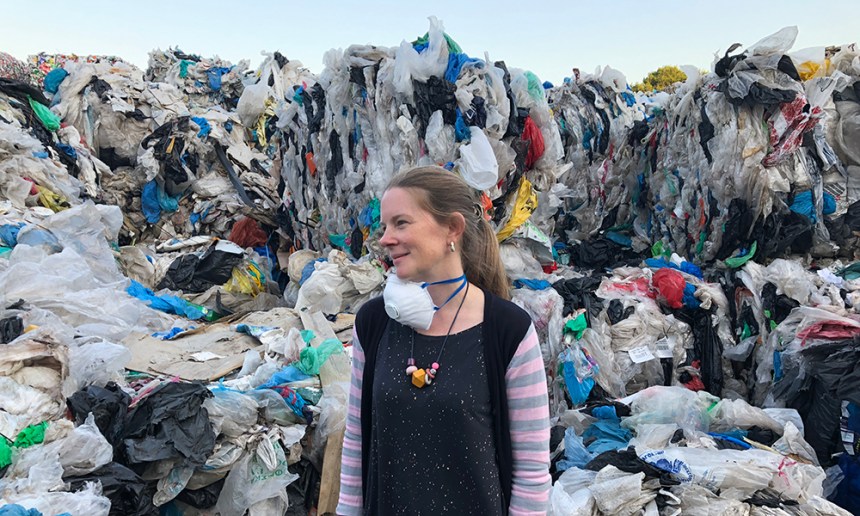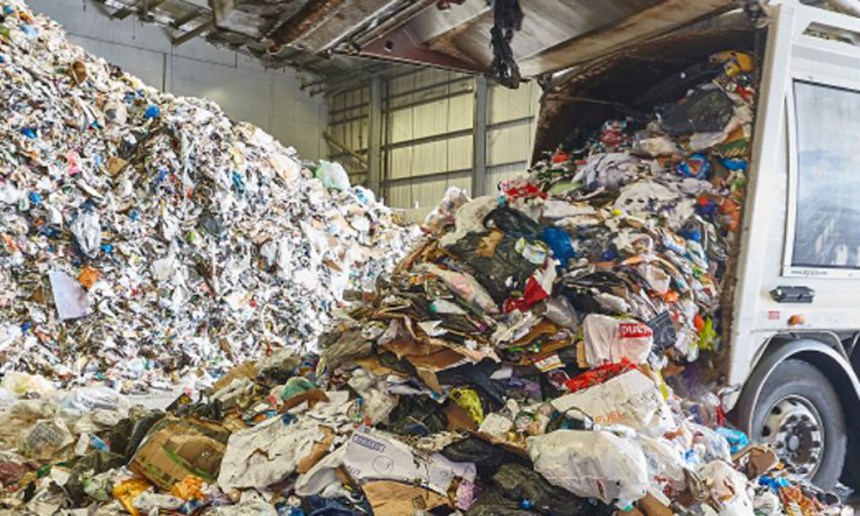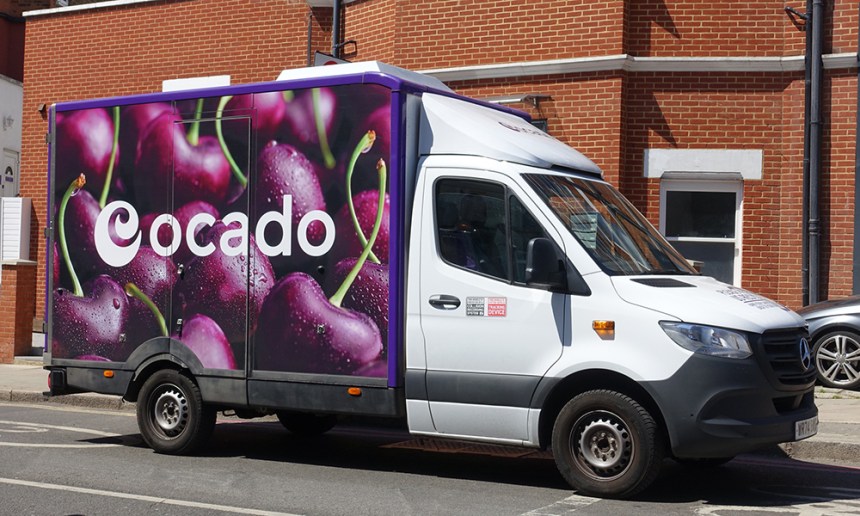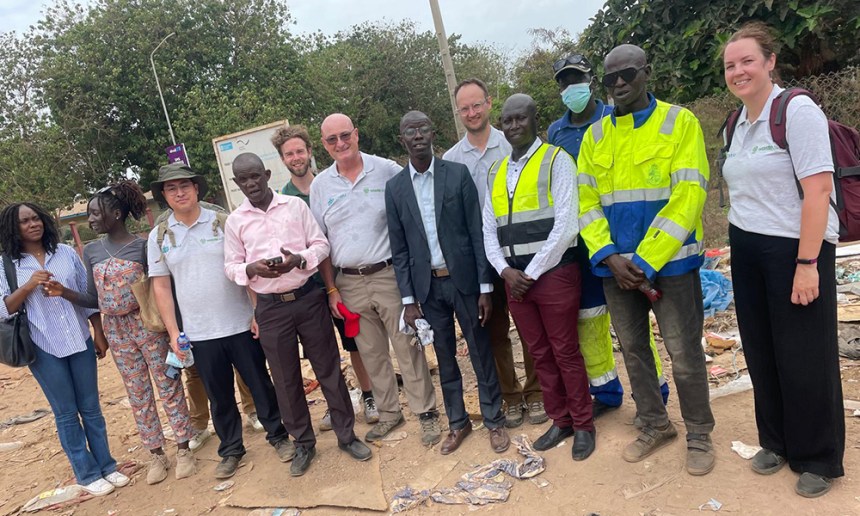Economy
Sophie Thomas receives OBE for services to sustainable design
CIWM Fellow Professor Sophie Thomas has been awarded an OBE in the King’s Birthday Honours for her services to sustainable design. The OBE honours nearly 30 years of service that has transformed how the design industry approaches materials, waste, and environmental responsibility. Reacting to her OBE, Professor Sophie Thomas said: “This recognition reflects the collective effort of everyone working toward regenerative design solutions. “It highlights the urgent need for designers to take responsibility for their role in creating a circular economy that serves both human and ecological needs.” Thomas is the Senior Director of the Useful Simple Trust and Director of Circular Design at Useful Projects, where she leads interdisciplinary…
Sustainable Construction Barometer 2025: What is the sector’s future?
Warren Fothergill, Premier Modular, analyses the findings of the Sustainable Construction Barometer 2025 and what they mean for the construction sector. The findings of the Sustainable Construction Barometer 2025 are both sobering and rousing for the sector and its wider supply chains. It’s clear that while awareness of sustainable construction is growing globally and there is a shared desire to improve, the UK still lags significantly behind, with only 24% of the population familiar with the concept. The construction industry is responsible for nearly 40% of global carbon emissions, which is why increasing the current levels of public awareness will be crucial in making sustainable construction the standard and…
North London Waste Authority targets 50% household recycling rate
North London Waste Authority approves new Joint Waste Strategy that sets target to achieve 50% household recycling rate by 2040. Members of the North London Waste Authority (NLWA) last week approved a new Joint Waste Strategy that covers the period between 2025 and 2040. The startegy includes targets such as halving avoidable food waste and recyclable materials in residual waste, doubling the proportion of materials reused at reuse and recycling centres, and achieving a 50% household recycling rate. The NLWA has also committed to reducing the environmental impact of disposal and sending zero waste to landfill. NLWA and the seven north London boroughs of Barnet, Camden, Enfield, Hackney, Haringey, Islington…
CEI roundtable: How does language impact our efforts to be more circular?
Members of the recent Circular Economy Institute (CEI) roundtable were asked an important question: how does the language we use help or hinder our efforts to be more circular with resources and waste? At this year’s Festival of Circular Economy, we brought together voices from across industry, policy and sustainability for a powerful CEI roundtable exploring whether the language we use helps or hinders our efforts to be more circular with resources and waste? Led by circulairty expert Mark Shayler, and sponsored by VEV, the roundtable tackled several fundamental questions: are we making the circular economy sound too complex, too niche, or even too elitist – when we should be…
Final EPR base fees criticised by UK glass sector
The UK Government’s final base fees for its Extended Producer Responsibility (EPR) scheme have been criticised by the British glass sector. The EPR Scheme Administrator PackUK has published the final base fees for year 1 (2025 to 2026) of the EPR for packaging scheme. The fees will go to local authorities to help them cover the cost of recycling and disposing waste packaging materials. A portion of the fees will also be used to cover PackUK’s operating costs. Table: EPR for packaging base fees for 2025 to 2026 for all packaging materials. Material Rate (in £ per tonne) Aluminium 266 Fibre-based composite 461 Glass 192 Paper and card 196 Plastic 423…
Selling the sizzle: How does language impact our efforts to be more circular?
Members of the recent Circular Economy Institute (CEI) roundtable were asked an important question: how does the language we use help or hinder our efforts to be more circular with resources and waste? The latest Circular Economy Institute roundtable discussion – which took place alongside CEI’s Festival of Circular Economy 2025 and was sponsored by VEV – was called ‘Simplifying language and “selling the sizzle” of the circular economy’. The aim was to take a step back and look at the vocabulary we use to talk about circularity. Can our language be simpler? Could our choice of words be better? And what difference could this make? The session’s facilitator…
Celebrating circular innovation in the United Arab Emirates
Mark Siddorn, Strategic Planning and Business Performance Director at Tadweer Group, explores circular innovation in the United Arab Emirates. When we think about the circular economy, we often look at some form of transformation or movement of a circular loop. How your banana peel becomes clean energy, or how used plastic bottles are reborn as sustainable bags or t-shirts. These stories are true, to an extent, but they are only part of the picture. At Tadweer Group, we have invested in research and development since our inception, with one key focus: how we can treat waste and use its powers for good; specifically, unsorted municipal solid waste, which is…
Reuse can compete economically with single-use, Ellen MacArthur Foundation study finds
Returnable packaging can compete with the economics of single-use packaging for certain products, a new study from the Ellen MacArthur Foundation has found. The ‘Unlocking a reuse revolution’ study analysed the benefits of adopting reusable plastic packaging for selected beverage, food cupboard, personal care, and fresh food items when designed collaboratively across the industry and operated at a large scale. It was developed with input from over 60 organisations, including the European Investment Bank, national governments, reuse experts and major brands and retailers – such as Danone, Nestlé, PepsiCo, The Coca-Cola Company, and Unilever. The study found that returnable packaging has the potential to offer ‘significant environmental benefits’, as…
Firms that use resources better, increase sales, research shows
Businesses making better use of resources are increasing their sales, according to new research by Green Alliance. The research from Green Alliance analysed Advanced Clothing Solutions, Ocado Retail, Screwfix and B&Q, Branston, Caterpillar and JCB, Project PRoGrESS, and The Greater Manchester Renew Hub. Green Alliance says the case studies and international comparisons highlight three actions that should form part of the strategy to support the growth of circular businesses. These are: Finance: Green Alliance are calling on the Treasury to introduce incentives that reward circular businesses for the value they provide to the economy. Consumer confidence: Strong regulatory standards and protections that build trust, reduce costs, and drive demand…
CIWM Members support WasteAid project in The Gambia
A team of waste management experts from the Chartered Institution of Wastes Management (CIWM) recently visited The Gambia to join WasteAid’s support of Operation Sanity – a local environmental initiative. The seven-day technical support visit aimed to bolster local capacity, share best practices, and develop sustainable solutions to pressing sanitation challenges in the region. Operation Sanity is a collaborative project with Kanifing Municipal Council (KMC), focused on reducing littering, improper waste disposal, and improving public sanitation through education and community engagement. The CIWM team wrote about their goals ahead of the visit. The initiative seeks to foster a circular economy by encouraging responsible waste management practices among residents and…

































